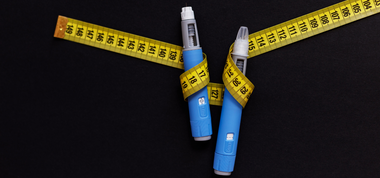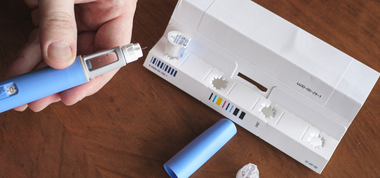Is it heart pain or just heartburn?

The signals our body sends us can be confusing. And if the signal is coming from your chest, the stakes are high – is it my heart or is it just heartburn?
First and foremost, here’s a good rule to follow: If in doubt, check it out. It’s always better to be safe than sorry.
That said, there are some clues that can help discriminate between heart pain and simple heartburn:
1. Heart pain tends to be brought on by exertion or stress and is relieved with rest. Heartburn has no relationship to physical activity. Instead, it tends to be related to ingestion of food.
2. Heart pain tends to occur in the context of risk factors for heart disease, including older age, family history of heart disease, history of high blood pressure, diabetes, high cholesterol, and/or history of tobacco use. Heartburn has no relationship to heart disease risk factors.
3. Heart pain tends to be progressive over time –it will take less and less activity or stress to prompt the pain. Heartburn tends to remain more random.
4. Heart pain is unlikely to occur spontaneously in the middle of the night. Heartburn classically wakes people up at 2 to 3 in the morning.
5. Heart pain may be accompanied by shortness of breath, sweating, and a sense of doom. Heartburn tends to be an isolated symptom.
6. Heart pain does not respond to antacids. Heartburn often gets better with over-the-counter medication like Maalox or TUMS.
7. Heart pain is unlikely to be felt below the rib cage. Heartburn can be felt in the abdomen.
But none of these are absolute, which is why it’s important to listen to your body – and your intuition. If you’re experiencing a new symptom in your chest, and especially if you have risk factors for heart disease, don’t ignore it. Contact your care provider and make an appointment to be checked out. And if you are experiencing chest pain or chest burning that is not going away – especially if it’s lasting more than 30 minutes – or if you have a sense that you need immediate care, head to the emergency room.
If you have regularly occurring heartburn, see your healthcare provider.
https://blogs.webmd.com/heart-disease/2016/12/is-it-heart-pain-or-just-heartburn.html

Tested & Proven Results.
- Cardiologist formulated
- Supported by over 500 publications
- Clinically-proven, in a double-blind randomized trial with Mayo Clinic and The University of Manitoba
80% of participants lowered their cholesterol in just 30 days. With just two servings per day, Step One Foods offers a proven-effective way to naturally lower LDL (bad) cholesterol.
Get heart health tips and articles like this, delivered right to your email.
New articles every week.
You may also like...

What You Need to Know About GLP-1 Medications: Part 3

What You Need to Know About GLP-1 Medications: Part 2

You don’t need to avoid foods with cholesterol…except for these


